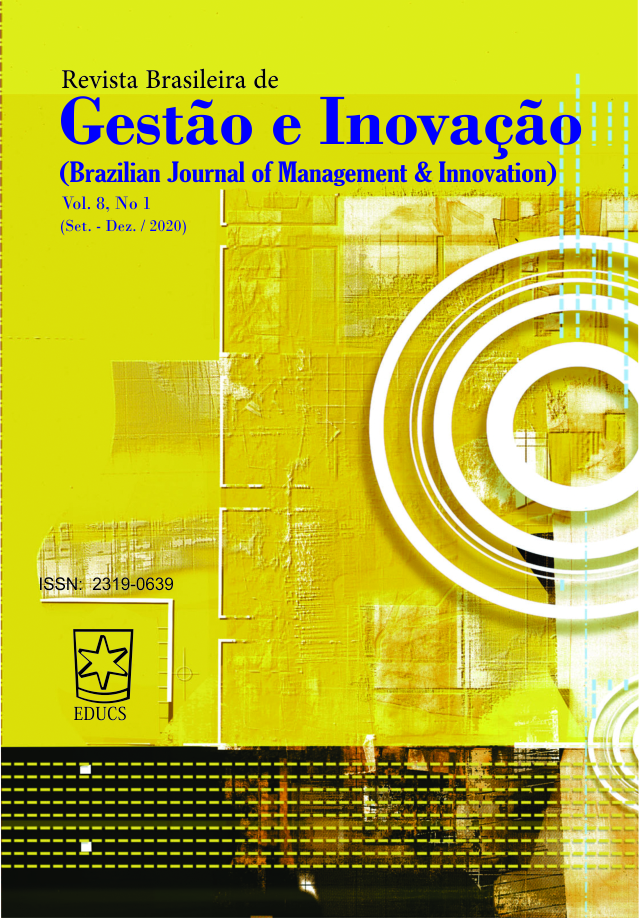O IMPACTO DO PROCESSO DE APROVAÇÃO DE PEÇAS DE PRODUÇÃO NO PROCESSO DE AVALIAÇÃO DE AMOSTRAS: UM ESTUDO DE UMA MONTADORA DE VEÍCULOS | THE IMPACT OF THE PRODUCTION PART APPROVAL PROCESS ON THE SAMPLE EVALUATION PROCESS: A STUDY OF A VEHICLE ASSEMBLER COMPANY
Keywords:
Fornecedores, PPAP, Desenvolvimento de FornecedoresAbstract
O mercado competitivo e cada vez mais globalizado exige que as organizações tenham uma relação com seus fornecedores que possibilite agregar valor e garantir qualidade a seus produtos. Neste contexto este estudo busca compreender as principais falhas no processo de elaboração da documentação de PPAP para a entrega junto ao primeiro lote de produção para uma empresa do ramo metalmecânico da Serra Gaúcha. A pesquisa realizada é qualitativa, sendo aplicada a seis fornecedores, atuantes em ramos variados de mercado, utilizou-se como instrumento de coleta de dados um questionário semiestruturado aplicado durante entrevistas presenciais e por telefone, nos meses de outubro e novembro de 2018. Os dados obtidos foram analisados por técnicas de análise de conteúdo, onde identificou-se que ocorrem falhas tanto originárias dos fornecedores quanto da empresa focal, principalmente relacionadas a troca de informações e aos prazos de desenvolvimento. Sugeriu-se também possibilidades de melhorias para a empresa focal, tomando por base as sugestões e críticas citadas pelos fornecedores entrevistados. Como conclusão, observou-se que as principais ações para a melhoria do processo de elaboração e entrega das documentações de PPAP junto ao primeiro lote de produção devem partir da empresa cliente, possibilitando assim ganhos neste processo e na relação com os fornecedores.
DOI: 10.18226/23190639.v8n1.03
Julian Perboni Copetti*, Universidade de Caxias do Sul (UCS). Brasil.
E-mail: julian_copetti@hotmail.com
Ivandro Cecconello, Universidade de Caxias do Sul (UCS). Brasil.
E-mail: iceccone@ucs.br
Submetido: Março 2019
Aceito: Novembro 2019
*Contato para Correspondência
Downloads
Published
How to Cite
Issue
Section
License
The author must guarantee that:
- there is full consensus among all the coauthors in approving the final version of the document and its submission for publication.
- the work is original, and when the work and/or words from other people were used, they were properly acknowledged.
Plagiarism in all of its forms constitutes an unethical publication behavior and is unacceptable. Revista Brasileira de Gestão e Inovação has the right to use software or any other method of plagiarism detection.
All manuscripts submitted to RBGI - Revista Brasileira de Gestão e Inovação go through plagiarism and self-plagiarism identification. Plagiarism identified during the evaluation process will result in the filing of the submission. In case plagiarism is identified in a manuscript published in the journal, the Editor-in-Chief will conduct a preliminary investigation and, if necessary, will make a retraction.
This journal, following the recommendations of the Open Source movement, provides full open access to its content. By doing this, the authors keep all of their rights allowing Revista Brasileira de Gestão e Inovação to publish and make its articles available to the whole community.
RBGI - Revista Brasileira de Gestão e Inovação content is licensed under a Creative Commons Attribution 4.0 International License.
Any user has the right to:
- Share - copy, download, print or redistribute the material in any medium or format, linking to RBGI site.
- Adapt - remix, transform and build upon the material for any purpose, even commercially.
According to the following terms:
- Attribution - You must give appropriate credit, provide a link to the license, and indicate if changes were made. You may do so in any reasonable manner, but not in any way that suggests the licensor endorses you or your use.
- No additional restrictions - You may not apply legal terms or technological measures that legally restrict others from doing anything that the license permits.
#RBGI







